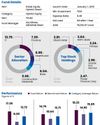
Behavioural finance was a subject of much debate in its early days. Can you tell us about your experience?
I came to Santa Clara University at the beginning of 1980 and met Hersh Shefrin (Canadian economist who worked in behavioural finance), who was working on issues of saving, self-control and mental accounting, and framing that in the context of savings.
As I was listening to him, it thought that in that framework, we can understand the issue of dividends. Why is it that people care about getting dividends rather than creating what (Nobel laureate) Miller Modigliani called homemade dividends by just selling shares? What people do is use dividends as a self-control device. If they spend the shares, they think they might sell too many and not save enough. So, people constrain themselves and spend from dividends and income, but don’t dip into the capital.
Hersh and I then wrote a paper and sent it to a top journal in finance, The Journal of Financial Economics. We didn’t expect it to be accepted because it was so different, but we were fortunate that the referee was Fischer Sheffey Black (American economist, best known as one of the authors of the Black–Scholes equation), who loved the paper. The editor, despite his misgivings, chose to publish it.
Of course, there were objections. One of my colleagues said that I like the paper, but I cannot teach it to my students because it’s not rational.
I went on because there were so many things that could make sense and could be explained (through that).
So, instead of asking if it’s rational or irrational, the question is: do people do that and why do they do that? That was the beginning.
Earlier people hesitated to join, and I thought that was good because they were just leaving the entire field to me, and I didn’t have to rush. Now, of course, it is everywhere.
Esta historia es de la edición May 2024 de Outlook Money.
Comience su prueba gratuita de Magzter GOLD de 7 días para acceder a miles de historias premium seleccionadas y a más de 9,000 revistas y periódicos.
Ya eres suscriptor ? Conectar
Esta historia es de la edición May 2024 de Outlook Money.
Comience su prueba gratuita de Magzter GOLD de 7 días para acceder a miles de historias premium seleccionadas y a más de 9,000 revistas y periódicos.
Ya eres suscriptor? Conectar

BUDGET & YOU: NEW REGIME BEATS OLD IN FY26
Lower tax slabs and nil tax on incomes up to 12 lakh has not only provided relief to middle-class families but also rendered the old tax regime irrelevant for most of them. The government also renewed its focus on senior citizens

Consistent Returns In Hybrid Space
The Indian equity market is going through rough waters, leaving investors uncertain about whether to choose equity or fixed-income investments. Experts, meanwhile, predict higher volatility and recommend a safer approach.

BEHIND THE MIND GAMES THAT END IN 'DIGITAL ARREST'
The new scam of digital arrest employs psychological pressure to dupe vulnerable victims, who go through a phase of trauma and fear. We tell you how it works, whether the government is doing enough to curb the menace, and how you can keep yourself safe

Boost To Consumption, But Don't Buy Blindly
With the budget putting more money into the hands of people to boost consumption and increasing foreign direct investment in insurance, certain consumer-oriented sectors, such as FMCG, auto, as well as manufacturing are expected to do well, but think before investing

Pre-Existing Diseases In Insurance
Understanding pre-existing diseases (PEDS) in health insurance is crucial because they can affect your coverage and premiums. Pre-existing conditions, such as diabetes or heart disease, are health issues you may already have and know of before purchasing insurance.

'Govts Are Often Influenced By Private Interests, And Don't Focus On Health'
Longevity is not about going to the gym or having superfoods, but living in an environment that promotes a healthy lifestyle. Dan Buettner, the Blue Zones founder, National Geographic fellow, best-selling author and the producer of the Emmy Award-winning 'Live to 100: Secrets of the Blue Zone' series, learnt this during his decades-long research into five blue zones of the world. In an interview with Nidhi Sinha, Editor, Outlook Money, as part of the Wealth Wizards series, he talks about another kind of wealth, a healthy and fulfilling long life. He also talks about blue zones, and how policy matters when it comes to improving the health, lifestyle and longevity of the population

The 'Gap' In Long-Term Returns
There is a significant gap in the nominal and inflation-adjusted returns across asset classes. So, reading long-term trends is important before making investing decisions

Changed Jobs? Where is Your EPF Money?
For many employees, transfer of EPF becomes a nightmare when changing jobs. We give you the likely problem scenarios and what you should do for a seamless transfer of your EPF upon changing jobs and states

Old-New Break-Even Point Is High
The break-even point for deductions to choose between the old and new tax regimes has increased to ₹8.50 lakh for income of ₹24.75 lakh and above. Normally, deductions and exemptions commonly claimed by salaried individuals do not exceed ₹8.50 lakh

How Not To Be Financially Vulnerable
We often naïvely assume that our monthly pay cheques will cover whatever life throws our way. But it may not cover all our emergencies, which is why we need to create a safety net